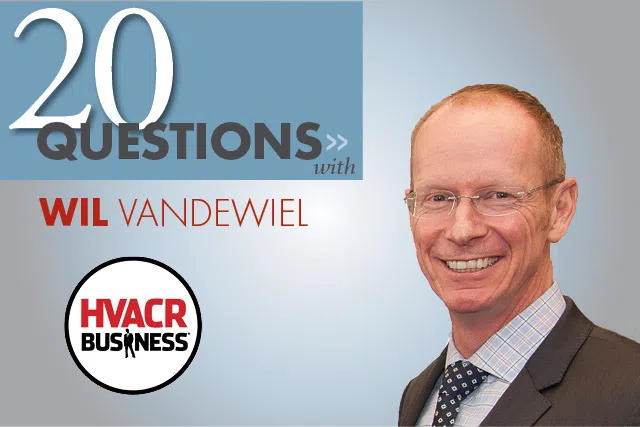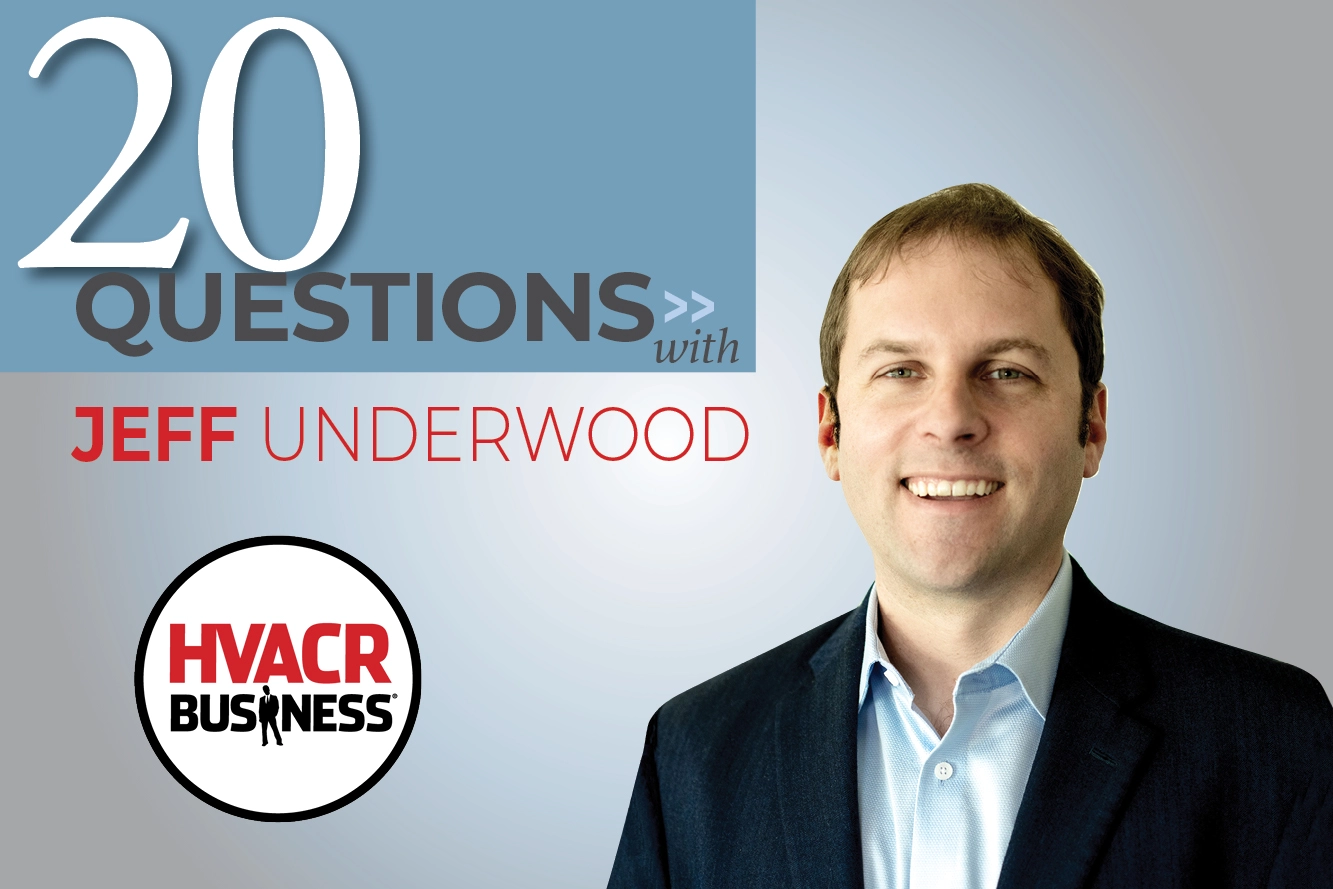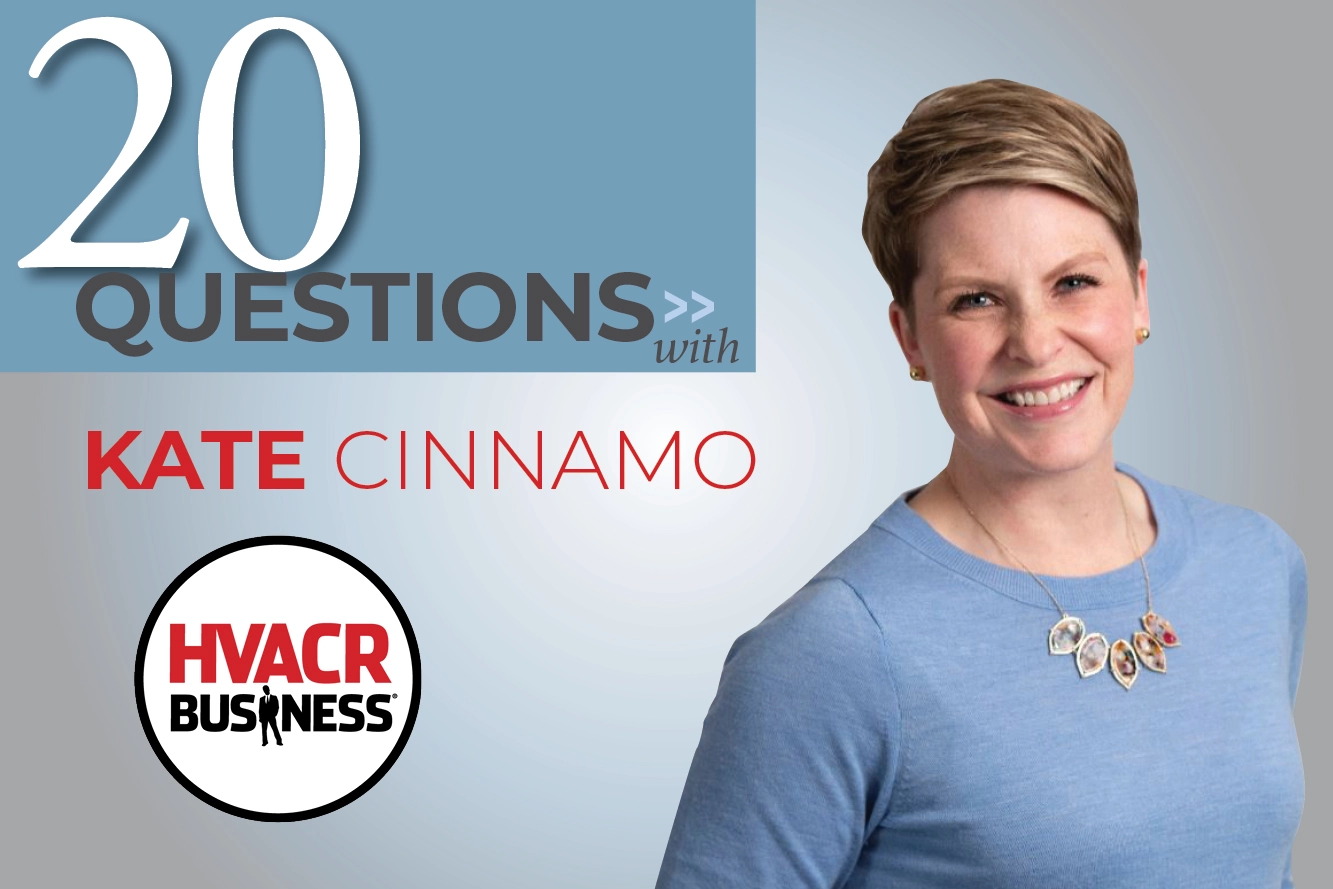Terry Tanker met with Wil VandeWiel, chief executive officer of Taco, Inc. at its headquarters in Cranston, R.I. The two discussed following in his father’s footsteps, coming to America and transforming a large, family-run business into a multi-national.
1. What is your background?
I was born and raised in Eindhoven, in the Netherlands. My father was a Green Beret in the Dutch Army and after he retired he worked for Phillips Electronics, the largest company around. After two years of college, I decided to join the army. When I returned home, I also went to work for Phillips.
2. What did you do for Phillips?
I started as a production engineer, and went to school in the evening to become a mechanical engineer. I also took part in one of the management development programs which was fortunate because Bosch acquired the division I was working for and they wanted me in an international management role. That’s when they provided me with the opportunity to attend the MIT Sloan School of Business.
3. Is that how you made your way to the U.S.?
Actually, that came later. Bosch Security Systems had acquired several companies in the U.S. and needed new leadership to manage the business. I started in my U.S. leadership role in 2006 and my family followed in 2007. We were quite successful, and lead the transformation from analog to digital cameras and even outfitted the White House, Capital and Pentagon.
4. Did you intend to stay in the U.S.?
At Bosch, you needed to have multiple foreign assignments. Once complete, you can select your assignment just about anywhere in the world. An expat assignment is typically 3-5 years, I was up for the next and final rotation but we really liked living in the U.S. We wanted to become citizens — which took another five years. Bosch supported our decision.
5. After leaving Bosch, what did you do?
I joined another German company named Dorma as president for North and South America. The board, however, decided to sell to a Swiss company and I thought that was a good opportunity for me to leave. That’s when I met John Hazen White from Taco.
6. What attracted you to Taco?
John’s vision for Taco. He wanted someone he could trust, who shared his belief in their people, and someone who could transform the company into a multi-national, ensuring it would endure for generations without losing sight of its core values. I knew one of my key strengths was to help companies in transition by building high performance management teams.
7. What convinced you to join Taco?
John is persuasive and a great closer. My wife and I went to dinner at his home and we clicked. While we were picking out a bottle of wine John said, “Let’s do this.” We shook hands and I arrived at Taco about a month later.
8. What was your initial assessment of Taco?
Taco has always been a very strong and profitable company. They’ve been dominant in the hydronic niche of HVACR and strong in the N.E. residential and commercial markets. But to grow and become a multi-national, we needed a partner or a large acquisition, and that’s when we were introduced to Askoll, an Italian company. As things turned out, we were actually able to acquire them. It provided a beachhead in Europe and with that aquisition we now owned high efficiency motor technology (ECM).
9. What did you want to accomplish the first year?
I wanted to reorganize the company and focus on market segments and business units. We created the Taco Family of Companies. Inside we transformed Taco HVAC into Taco Comfort Solutions. We also created Taco Industrial — Agriculture, Mining and Municipal and Taco International, basically everything outside the U.S.
10. What was the advantage of the reorganization?
To fulfill our accelerated growth plan, the company needed to have a market-focus. We had to reorganize our infrastructure and our organization and we also had to upgrade our systems to cope with the dynamics of international markets.
11. How do you motivate people when there is so much change?
One of the first things I tried to do was align all of our initiatives. Everybody’s incentives were directly related to one of our strategic initiatives. And, for the first time we published them so, you know what my goals are and I know yours.
12. Taco was a large company before you arrived, yet it was run largely like a family business — What challenges did that present?
Theoretically, I knew we could do everything John and I had talked about. The challenge was the company culture. You can’t change culture overnight, but with common sense, time, patience, some flexibility, a plan and the buy-in of key personnel, it can happen.
13. How do you prepare for culture change?
You have to improvise, overcome, be persistent and share your vision relentlessly. And, maybe most importantly, you have to look at the changes you want to implement and clearly understand what the organization can actually bear and at what pace.
14. What is the key to changing a company’s culture?
Taco has been a family owned business for 96 years and they’ve done similar things for the entire time and have been quite successful. My goal is to set a direction and give our teams room to execute.
15. What is your strength as a manager?
I think my biggest strength is building teams. It’s understanding that I don’t know everything, putting my ego aside and making sure that I hire the best people who can help move the company in the direction we need to go.
16. Are you a hands-off manager?
No. But you need to give your management team the freedom to figure things out, to make their own mistakes and to enjoy their successes. If you do, they own it and it’s “their thing.” It’s not mine anymore.
17. What is the long-range vision for Taco?
Honoring Taco’s heritage with its strong manufacturing base, offering an innovative portfolio of products, being well positioned in the market and being environmentally conscious.
18. How would you describe your vision to stakeholders?
I present the vision by drawing a clock dial with the sale at 12 o’clock. As we move around the dial, there is maintenance, repair and replacement. That’s basically the lifecycle of our products and solutions, and we want to own that circle.
19. Looking forward to 2018 where do you want to be?
By 2020, all of our offerings will have an ECM motor option for it. Second, we’ll focus on expanding into adjacent markets. Finally, we’ll become a service provider. When our products are in a customer’s building or home, we want those systems to communicate with the cloud wirelessly. So, with a subscription, we can monitor and be proactive with problems.
20. Will monitoring systems be part of your strategy moving forward?
I think energy management is going to be big. And, we can guarantee your total cost of ownership of your system. And, rather than large capital expenditures, there will be options to lease systems.






